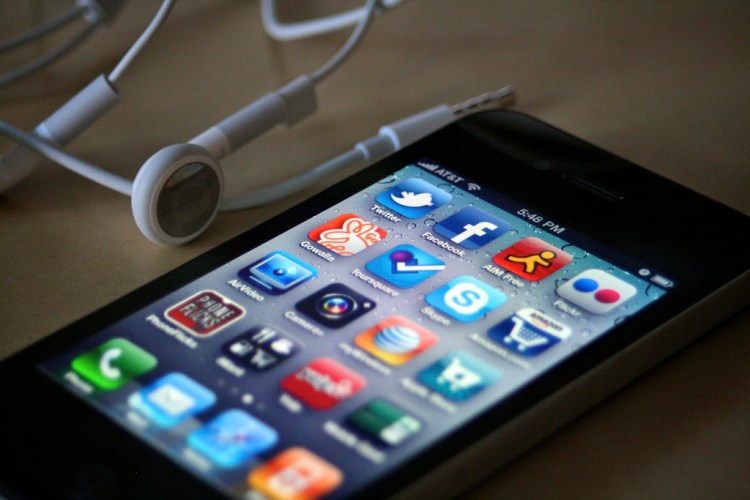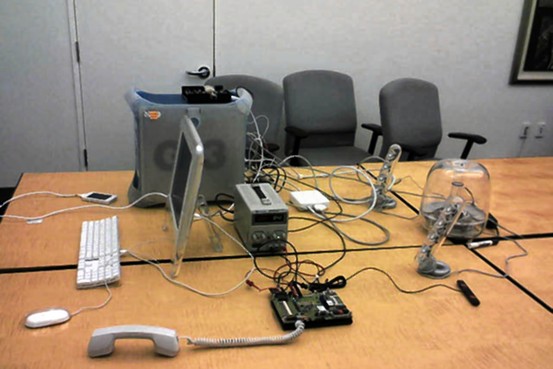Ahead of the most recent legal battle between Apple and Samsung, one of Apple’s lead engineers is finally telling the tale of the first iPhone’s software.
Greg Christie, a senior engineer at Apple, revealed to the Wall Street Journal that Steve Jobs gave his team an ultimatum back in February 2005: Come up with some big ideas for the iPhone within two weeks or lose the project to another group.
Christie’s team would go on to innovate some of the more iconic features of the iPhone, like its “slide to unlock” feature and its integrated music player. It’s hard to remember this today, when we’re surrounded by touchscreen smartphones and tablets, but before the iPhone, few were thinking about touchscreen user interfaces.
He described the team working on the original iPhone’s software as “shockingly small” and noted that they “banged their head against the wall” to figure out a way to make text messages look more conversational, rather than a mere list of text. But as Christie’s team made headway and Jobs began obsessing about the project, it became clear they were making progress.
Most intriguing to hardware geeks, Christie showed the setup his team used to build the first version of iOS: A plastic touchscreen connected to an aging Mac G3 (which mimicked the first iPhone’s slow processor), which was codenamed “Wallaby.”
With the next court trial between Apple and Samsung over patent disputes scheduled to start Monday, it’s clear why Apple finally offered up Christie’s story to the press. It wants to prove that its innovations with the first iPhone came from years of hard work and that Samsung copied many of its designs and features.
Back in 2012, a federal jury found that Samsung “willfully” infringed on Apple’s patents and ordered Samsung to pay more than $1 billion in damages. That fee was eventually slashed by $450 million by federal judge Lucy Koh, who called for yet another trial to assess damages. Late last year, Apple ended up winning another court battle against Samsung, but it failed to win the ban on Samsung devices that it initially wanted.
VentureBeat's mission is to be a digital town square for technical decision-makers to gain knowledge about transformative enterprise technology and transact. Learn More


